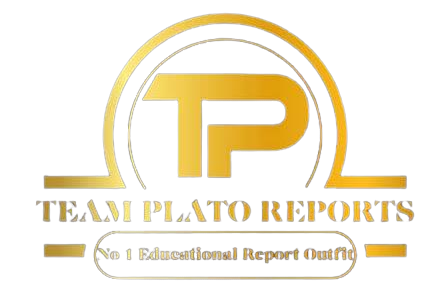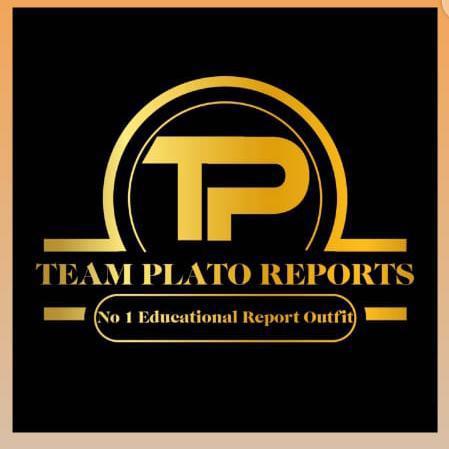Some Nigerian university lecturers said they are facing serious economic hardship after being denied their salaries for two months for refusing to enrol in the federal government’s centralised payment platform.
Their situation has been compounded by the lockdown of the economy over the coronavirus pandemic.
The Academic Staff Union of Universities (ASUU) had last month declared an indefinite strike over the federal government withholding the salaries of its members who defied the order of government to enrol in the Integrated Personnel and Payroll System (IPPIS).
ASUU responded in March by declaring an indefinite strike, while the government closed down all schools as part of the measures to contain COVID-19.
Checks by our correspondent revealed no sign that the impasse would be resolved soon as the last meeting between the lecturers and the government ended in a stalemate.
The coronavirus crisis has since shifted the attention of the government and the public away from the dispute with ASUU with the teachers who are not being paid mostly bearing the brunt of the stalemate.
Findings by PREMIUM TIMES’ reveal that many of the lecturers are finding it difficult to cope with the lockdown without their salaries.
Some of those who spoke with our correspondent said they were living on debts or depending on family members and friends, while others said they had to cut their spending.
A lecturer in the Department of Adult Education at the University of Ibadan, Olusola Omoregie, saw an irony in the federal government giving palliatives to “faceless Nigerians” while refusing to pay the salaries of “over 20,000” academic staff in federal universities.
“I have not been paid for the past two months and there is no sign that I will be paid again in April. Something has gone wrong if the government gives palliatives to the ‘poor’ but refused to pay the salary of over 20,000 academics in Nigerian federal universities. No sane society treats its intellectuals like this. The bone of contention is IPPIS, which is being discussed between ASUU and FGN.
“I have six dependants including my wife, who is also an academic; children and aged parents. At this time of COVID-19 stay at home, the government continues to give palliatives to faceless Nigerians without any consideration for its academics. What are they telling future generation if this government treats intellectuals like this?”
Adebayo Adegbore, a lecturer at the Faculty of Education, University of Ibadan, said some of his colleagues are living in debts.
“On this, this is just to confirm to Nigerians how insensitive the government is. We have been on this actively for close to three years now. A series of meetings held, our complaints about the inadequacies in the IPPIS fell on government’s deaf ear.
“For example, academics have peculiarities that were not taken care of. The vice president on an occasion promised to prevail on the developers (of the IPPIS platform) but nothing was done. So if the government is hell-bent on destroying the university system like they did to primary and secondary schools and the public is not on our side; no problems, posterity will judge all us.
Our money is somewhere they called IPPIS which contravenes the university autonomy law. The University Council is our employer and there is is a law that instituted the council, if anything in the university system must change, the law that gave the universities autonomy must change first.
“IPPIS, as it is currently put, is like asking all lecturers to queue up in Abuja to collect their salaries at the end of each month because if you have problem with what you are paid, you have to go to Abuja to complain, unlike having such complaints solved in your respective schools.”
Another lecturer at the University of Ibadan, Rahman Akinoso, said it is hard for lecturers because nobody is willing to assist them, based on the assumption that they are rich and have enough in reserve.
Mr Akinoso, a Professor of Food Engineering in the Department of Food Technology, University of Ibadan, prayed for quick resolution of the crisis.
He said some of them envisaged that their salaries would be stopped since December and had adopted “a coping strategy.”
“One of the good qualities of an academic staff is living a moderate life. We envisaged stoppage of salary since December, thus individuals adopted a coping strategy.”
Abdulahi Ali, a former Head of Department of Social Work, University of Ilorin, said some lecturers cannot discharge their responsibilities as fathers, mothers and children.
Mr Ali stressed that it is not easy coping without salaries at this period of a lockdown.,
“We are not happy, we can’t discharge our responsibilities as fathers, mothers and children but many of us believe it is a fight that is worth it. We are doing it for the system. We are doing it for our children. We are hungry because of Nigeria. We will not die if government refused to listen to words of wisdom.
“It is not easy coping though. I think the government has the responsibility to look into ASUU’s demands and reconsider its stand. Let them have virtual meetings and iron out issues.”
Alexander Aleh, a lecturer at the Federal University of Lafia, Nasarawa State, said his wife had come to the rescue of his family.
“Thank God for my wife, we are surviving and I am willing to go further in this battle to salvage the Nigerian university system if that is the price.
“In the practical sense of it, aside the terrible environment under which lecturers work, they are poor due to the policies of government. Yet government would prefer to roll out palliative measures to cushion the impact of the present economic realities that they are responsible for for certain unknown poor in a manner you cannot hold them (government) accountable for”.
We’ve been coping, we had to cut expenses – ASUU
The Academic Staff Union of Universities (ASUU) said that members of the union had to cut their expenses in order to survive at this period.
ASUU Chairman, University of Ibadan chapter, Ayo Akinwole, spoke on the economic hardship his colleagues are facing in this period of coronavirus lockdown without two months’ salaries.
Mr Akinwole, a professor, in a telephone interview with PREMIUM TIMES, said members had to cut their expenses in order to survive this period.
“Everybody will know how to cope, we have been coping, we have to cut our expenses. Like I said, our members have been coping within the limit of their resources.
“We have been indoors but our members who are medical personnel are up and doing, contributing their quota at this period.
“Well, the issue of non-payment of salaries is one which workers in Nigeria have to battle with. But, our members are up to the task. We are saying no to the IPPIS. The government is paying lip service to education and health and that is the result we are seeing now.”
Related
Balogun Adeboye
Related posts
Subscribe
* You will receive the latest news and updates on from TEAM PLATO REPORTS
Quick Cook!
ALL YOU NEED TO KNOW ABOUT UNILORIN POST UTME – TAIWO OLALERE O. (PREMIER)
SECTION A 🔥 A Must Read For All UNILORIN Aspirants. ALL YOU NEED TO KNOW ABOUT UNILORIN POST UTME –…
Subscribe Now
Subscribe to get latest news from Team Plato directly in your mail



